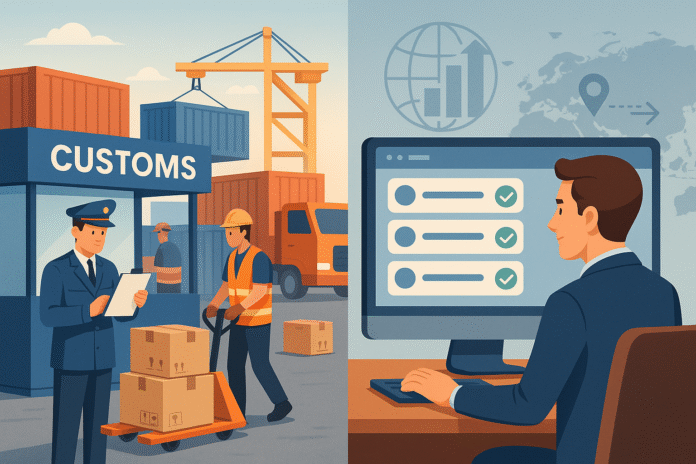Customs delays can be a major headache for businesses and individuals alike, especially when it comes to international shipping. A delayed shipment means frustrated customers, increased costs, and disrupted supply chains. However, many customs delays are avoidable with proper preparation and knowledge. This blog will provide you with practical and actionable tips to help you steer clear of common customs pitfalls and ensure your shipments clear customs as smoothly and quickly as possible.
Understanding Customs Delays
Before diving into the tips, it’s important to understand why customs delays occur in the first place. Customs authorities are responsible for inspecting and regulating goods entering a country to enforce laws, collect tariffs, and ensure security. Delays often happen due to:
- Incomplete or inaccurate documentation
- Incorrect classification or valuation of goods
- Non-compliance with import/export regulations
- Missing licenses or permits
- Suspicious or high-risk shipments
- Physical inspections and security checks
Knowing these common causes helps you better prepare your shipments to avoid these issues altogether.
1. Prepare Accurate and Complete Documentation
One of the leading causes of customs delays is improper paperwork. Customs officials rely heavily on documentation to process shipments efficiently.
Key Documents to Prepare:
- Commercial Invoice: Should include a detailed description of the goods, quantities, unit value, total value, currency, and terms of sale.
- Packing List: Lists all items in the shipment with details such as weight, dimensions, and packaging type.
- Bill of Lading / Airway Bill: Proof of shipment issued by the carrier.
- Certificate of Origin: Shows the country where the goods were manufactured.
- Import/Export Licenses: If required by the destination country.
- Other permits: For restricted goods like food, chemicals, electronics, etc.
Tips:
- Double-check all information before submitting.
- Avoid vague descriptions (e.g., “electronics”) — be specific (e.g., “digital cameras”).
- Ensure invoice values match the actual transaction to prevent suspicion.
- Translate documents if required by the destination country.
2. Classify Your Goods Correctly Using HS Codes
Every product traded internationally is assigned a Harmonized System (HS) code — a standardized numeric code that classifies goods for customs purposes.
Why it matters:
Incorrect HS codes can cause customs to delay shipments for reassessment or impose wrong tariffs and fines.
How to avoid errors:
- Use official HS code lookup tools or consult with customs brokers.
- Review the latest tariff schedules for your destination country.
- Stay updated on changes in classification rules.
- If in doubt, seek expert advice.
3. Declare Accurate Values and Pay Duties Timely
Undervaluing or overvaluing goods can raise red flags. Customs authorities may delay shipments to verify values or suspect fraud.
Best Practices:
- Declare the true transaction value on your commercial invoice.
- Include additional costs like shipping and insurance if required by customs valuation rules.
- Calculate applicable duties and taxes accurately to avoid payment delays.
- Use trusted customs brokers or freight forwarders who can help manage duty payments efficiently.
4. Know and Comply with Import/Export Regulations
Every country has specific rules on what goods are allowed, restricted, or prohibited. Non-compliance can result in shipment holds or rejections.
Tips:
- Research the regulations of your destination country thoroughly.
- Obtain necessary permits or licenses well before shipment.
- Avoid shipping prohibited items or items requiring special treatment unless you have clearance.
- Keep abreast of changes in international trade regulations or sanctions.
5. Work with Experienced Customs Brokers and Freight Forwarders
Customs clearance is complex, and partnering with professionals can save you from costly mistakes and delays.
Benefits:
- Brokers help ensure paperwork accuracy and compliance.
- They can anticipate potential issues and prepare solutions.
- Provide guidance on tariff classifications, duties, and regulations.
- Expedite the release of shipments through their relationships with customs officials.
6. Use Electronic Customs Filing and Track Shipments
Many customs authorities offer electronic filing systems (e.g., ACE in the USA, CHIEF in the UK) that speed up processing.
Recommendations:
- Submit all documents electronically before goods arrive.
- Use tracking tools to monitor shipment status in real time.
- Respond quickly to customs queries or requests for additional information.
7. Package and Label Goods Clearly and Correctly
Clear labeling reduces inspection time and confusion.
Labeling tips:
- Mark products with country of origin.
- Include handling instructions (e.g., “Fragile,” “This Side Up”).
- Ensure barcodes or serial numbers are visible and accurate.
- Avoid ambiguous or misleading labels.
8. Avoid Shipping Restricted or High-Risk Items Without Proper Preparation
Items such as pharmaceuticals, food, chemicals, electronics, and luxury goods often attract extra scrutiny.
Preparation steps:
- Ensure compliance with safety, health, and environmental standards.
- Provide certificates like sanitary certificates or safety data sheets if needed.
- Clearly declare contents and quantities to avoid suspicion.
9. Build Good Relationships with Customs Officials
If possible, cultivating a cooperative relationship with customs can expedite your shipments.
How:
- Maintain transparency and honesty in all dealings.
- Respond promptly to inquiries.
- Work with trusted brokers who have good standing.
- Attend customs training or seminars to stay informed.
10. Plan for Customs Clearance in Your Shipping Schedule
Customs clearance can take time, so plan shipments with realistic delivery expectations.
Tips:
- Avoid last-minute shipments if possible.
- Allow buffer days for unexpected delays.
- Communicate expected clearance times with customers or recipients.
Conclusion
Customs delays can be a major obstacle in international shipping, but most delays are avoidable with the right preparation and knowledge. By ensuring accurate documentation, correct classification and valuation, compliance with regulations, and working with professionals, you can significantly reduce customs clearance times. Electronic filing, proper labeling, and strategic planning further smooth the process. Avoiding customs delays not only saves money but also strengthens your reputation as a reliable shipper.
Investing time upfront to understand and prepare for customs requirements will pay off in smoother shipments and happier customers. Use the tips outlined here as your checklist for every international shipment and watch your customs clearance process become faster and hassle-free.




